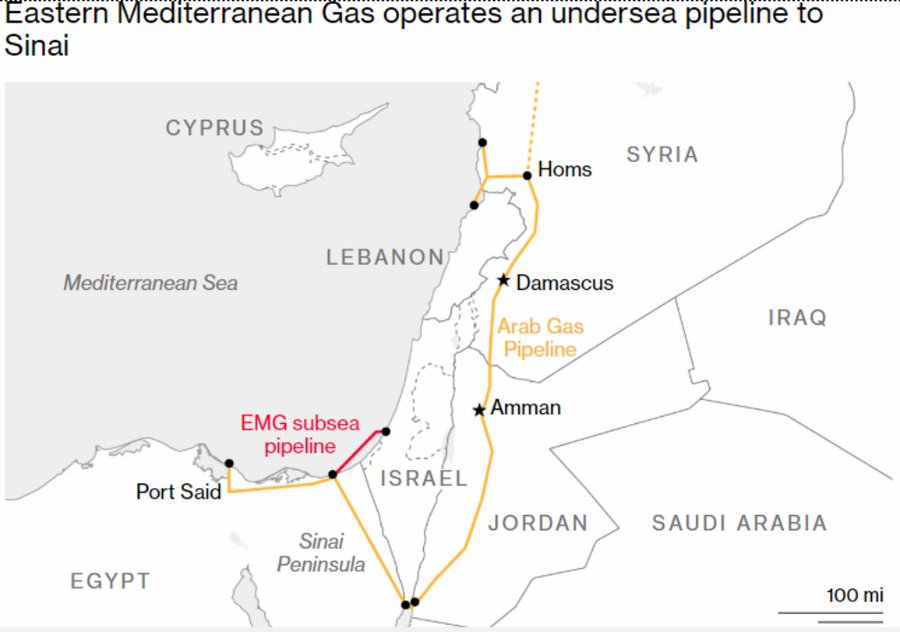
On February 2nd, armed militants blew up a gas pipeline in Northern Sinai connecting Egypt and Israel.
At least six masked militants planted explosives under the pipeline in the town of Bir al-Abd. It transfers gas to el-Arish, the provincial capital of North Sinai, and a cement factory in central Sinai, local officials said.
The pipeline allegedly remained “functional” following the attacks.
A statement from the office of Israel’s energy minister, Yuval Steinitz, read:
“At the moment, the natural gas is flowing from Israel through the pipeline and reaching Egypt.The ministry looked into the reported explosion, such as it was, in coordination with all relevant authorities.”
Another statement from the corporate partners operating Israel’s Leviathan gas field, which supplies the gas to the pipeline in question, issued a statement late on February 2nd said:
“There has not been any damage to the EMG pipeline connecting Israel and Egypt. The flow of gas from Leviathan to Egypt is continuing as normal.”
Thus, it is unclear if the attack even took place.
The reports of the sabotage come just two weeks after Israel started pumping natural gas to Egypt from two massive offshore fields, marking a major milestone and a historic cooperation between the countries, according to a joint January 15 statement by the two countries’ governments.
Steinitz hailed the move at the time as “the most significant cooperation ever between Israel and Egypt, in energy and the economy, since the [1979] peace treaty.”
The gas pipelines running through the Sinai Peninsula have long been a favorite target of jihadist groups in the restive region.
@nblenergy and Delek have finalized their acquisition of EMG pipeline, enabling a landmark $15 billion natural gas export deal between #Egypt and #Israel begin next year #oott #lng #energy @EgyptOilandGas

Israel’s Delek Group and the American company Noble Energy – which together own 85% of the Leviathan field – completed the purchase of 39% of the Egyptian gas pipeline in partnership. The purchase was carried out in conjunction with Egypt’s state-owned company EGAS for about $520 million.
Egypt has battled insurgents in Northern and Central Sinai since 2011, with varied intensity.
In late 2017, North Sinai was the scene of the deadliest attack in Egypt’s modern history when fighters killed more than 300 worshippers at a mosque, without any group claiming responsibility.
Following that, Egyptian president Abdel Fattah el-Sisi gave the order that the peninsula must be purged of terrorist elements.
In February 2018, the army launched a military operation aimed at defeating ISIS or related armed groups in the Sinai Peninsula.
Since then Egypt provides regular updates of how the operation is going. In November 2019, which was the most recent report it said that throughout October 2019, 83 suspected terrorist fighters had been killed, and 61 were detained.
According to estimates based on official figures upwards of 700 militants have been killed since the start of the operation, while the army has lost around 50 soldiers.
MORE ON THE TOPIC:
River to Sea
 Uprooted Palestinian
Uprooted Palestinian
The views expressed in this article are the sole responsibility of the author and do not necessarily reflect those of the Blog!
No comments:
Post a Comment